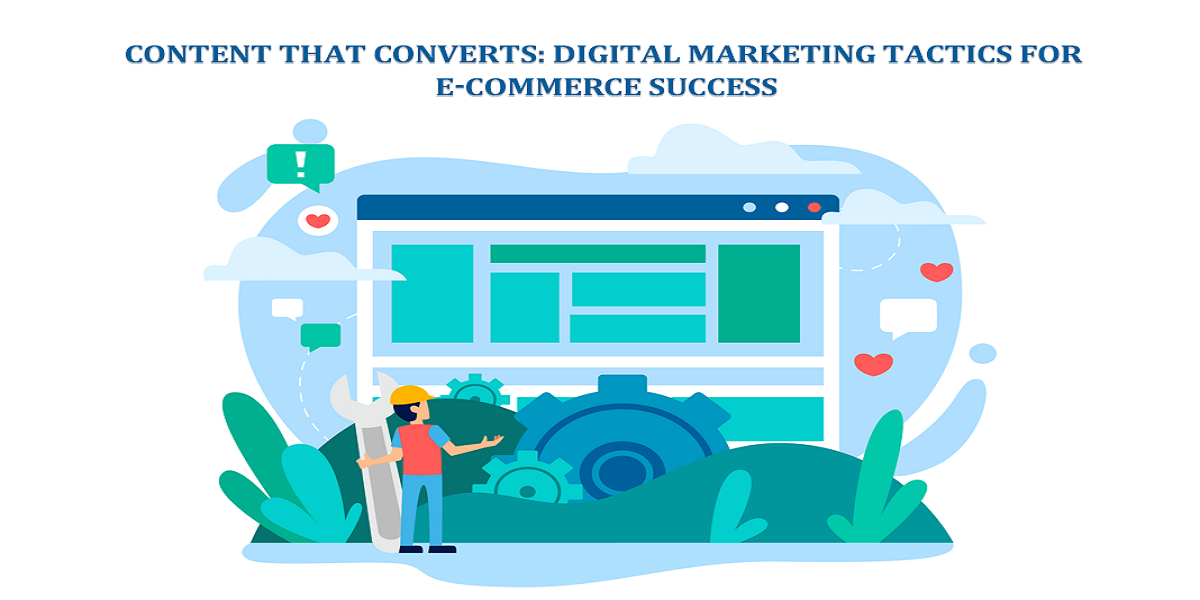
The Future of Software Development: Trends and Predictions
- By Kalyani Tallapaka
- 12-04-2023
- Software
Software development is an ever-evolving industry that requires us to be ahead of the curve when it comes to predicting future trends. In this article, we will discuss the latest trends and predictions in software development, exploring what the future may hold. We will take a look at emerging technologies, new coding languages, and how machine learning is changing the way we create software. We will also look at how these changes are affecting the job market and providing developers with both opportunities and challenges.
What is Software Development?
One of the most dynamic and innovative fields in the world today is software development. Software development involves creating, designing, testing, and implementing various computer programs that can perform specific functions on devices such as computers or mobile phones. Due to its ever-changing nature, software development has experienced tremendous growth over the years.
One of the trends that are currently shaping the future of software development is cloud computing. Cloud services allow developers to create and deploy applications without having to worry about infrastructure. This means that businesses can focus on their core operations while relying on cloud providers for their IT needs.
Another trend is artificial intelligence (AI) and machine learning (ML), which are becoming increasingly popular in software development. Developers use AI and ML algorithms to create intelligent applications capable of learning from data patterns, making predictions, and automating tasks for users. As technology continues to advance at an unprecedented rate, we can expect more opportunities in this field as well as new challenges that developers will have to overcome.
Are you interested in Pega training? If so, you're not alone. Pega is a leading provider of software for customer engagement and operational excellence. Its platform is used by organizations around the world to automate and optimize their business processes.
Increasing Automation
Automation is another major trend that is shaping the future of software development. With the rise of artificial intelligence (AI) and machine learning (ML), we can expect to see an increasing amount of automation in software development processes. This includes everything from automating testing and deployment tasks to using AI and ML to assist with coding.
One of the key benefits of automation is that it can help organizations to reduce costs and improve efficiency. By automating repetitive tasks, such as testing and deployment, organizations can free up resources to focus on more strategic activities, such as innovation and customer engagement.
In addition to improving efficiency, automation can also help to improve the quality of software. By automating testing tasks, for example, organizations can reduce the risk of errors and bugs being introduced into the code. This can help to ensure that software is delivered on time and meets customer expectations.
As AI and ML technologies continue to evolve, we can expect to see even more automation in software development processes. For example, AI algorithms may be able to assist with coding tasks, such as identifying patterns and suggesting code snippets. This could help to speed up the coding process and reduce the risk of errors.
However, it's important to note that automation is not a silver bullet for software development. While it can help to improve efficiency and quality, it is not a replacement for skilled developers and testers. Human expertise is still needed to make important decisions and to ensure that software is delivered on time and to a high standard.
Increasing Focus on Security
The increasing focus on security in software development can be attributed to the growing concern for data privacy and protection. With the rise of cybercrime, it has become more essential than ever for companies to ensure that their systems are secure from potential threats. The use of encryption methods and two-factor authentication are just a few examples of how developers can increase security measures in software.
Another trend in software development is the implementation of DevOps, where security is integrated into the entire development process rather than being an afterthought. This approach ensures that security is considered at every stage of development, from design to testing and deployment. Additionally, there is a growing interest in using artificial intelligence and machine learning algorithms to detect potential vulnerabilities early on in the development cycle.
Overall, as technology continues to advance rapidly, it's crucial for software developers to prioritize security measures in order to protect sensitive information and prevent cyber attacks. By staying up-to-date with emerging trends and utilizing advanced technologies, developers can create more secure solutions that meet the needs of both businesses and consumers alike.
Artificial Intelligence and Machine Learning
Artificial intelligence (AI) and machine learning (ML) are two of the most exciting trends in software development today. These technologies are already being used in a wide range of applications, from natural language processing and image recognition to predictive analytics and fraud detection.
AI and ML have a significant advantage in their capacity to analyze vast quantities of data with speed and precision. This makes them well-suited for tasks such as data analysis and predictive modeling. For example, in the field of healthcare, AI and ML algorithms are being used to analyze patient data and identify potential health risks before they become serious problems.
We can anticipate a broader adoption of AI and ML in software development in the future. For example, AI algorithms may be able to assist with coding tasks, such as identifying patterns and suggesting code snippets. This could help to speed up the coding process and reduce the risk of errors.
Another area where AI and ML are expected to have a significant impact is in the field of automation. As we discussed earlier, automation is becoming increasingly important in software development, and AI and ML technologies can help to automate tasks such as testing and deployment.
However, it's important to note that AI and ML are not a silver bullet for software development. These technologies require significant expertise to implement and use effectively. Additionally, there are ethical and legal considerations that must be taken into account, such as ensuring that AI algorithms are transparent and unbiased.
Cloud Computing and the Internet of Things
As we move closer to a future that is heavily reliant on technology, there are two technological advancements that are playing a huge role in the way we live and work- cloud computing and the Internet of Things (IoT). The IoT refers to a network of physical objects like sensors, appliances, and machines that are connected to the internet. These devices collect and share data with each other using cloud-based platforms. Cloud computing, on the other hand, involves delivering computing services over the internet.
The combination of these two technologies has opened up numerous opportunities for businesses in various industries. For instance, healthcare providers can use IoT-enabled devices to monitor patients remotely while storing patient data securely on cloud servers. This not only increases efficiency but also reduces costs associated with traditional healthcare systems. Similarly, companies in manufacturing can use IoT sensors to improve processes like supply chain management, quality control, and equipment maintenance.
As more businesses adopt these technologies into their operations, it's safe to say that software development will take center stage in shaping how they operate.
Developers will need to create applications that can integrate multiple devices across different platforms while ensuring security and performance. As such developers must acquire skills related to building scalable web applications capable of handling enormous amounts of data generated by IoT devices stored in large-scale databases deployed across various clouds infrastructure.
DevOps: Faster Delivery Cycles
One of the most significant trends in software development today is the rise of DevOps. DevOps is a set of practices that combines software development (Dev) and IT operations (Ops) to create a more efficient and collaborative process for delivering software. By breaking down silos between development and operations teams, DevOps enables organizations to achieve faster delivery cycles, higher quality software, and greater customer satisfaction.
DevOps is becoming increasingly popular because it offers a number of benefits to organizations. By automating tasks and creating a culture of collaboration, DevOps enables organizations to deliver software faster and with fewer errors. This leads to more satisfied customers, who are able to access new features and functionality more quickly.
Another important aspect of DevOps is its focus on continuous integration and continuous delivery (CI/CD). CI/CD refers to a collection of procedures that streamline the software development lifecycle by automating the building, testing, and deployment process. By using CI/CD, organizations can release software updates more frequently and with greater confidence, knowing that the updates have been thoroughly tested and are ready for deployment.
In the future, we can expect to see even more organizations adopt DevOps practices. As software becomes more critical to business success, organizations will need to find ways to deliver it faster and more reliably. DevOps provides a framework for achieving these goals, and we can expect to see it become a standard part of software development in the coming years.
We can also expect to see new tools and technologies emerge that will make DevOps even more efficient and effective. For example, artificial intelligence and machine learning are already being used to automate testing and deployment tasks, and we can expect these technologies to become even more powerful in the future.
User Experience and Design Thinking Principles
User experience (UX) and design thinking principles have become increasingly important in software development. Companies are realizing that creating a product that is functional is not enough, it must also be intuitive and easy to use. UX design focuses on understanding the needs of users and tailoring the product to meet those needs. This includes everything from the layout of the user interface to the functionality of individual features.
Design thinking principles go hand in hand with UX design as they involve empathy and understanding for users. Design thinking involves a problem-solving approach that puts users at the center of the process. This encourages developers to think outside of their own experiences and biases, ultimately leading to a more user-centered product.
As software development continues to evolve, these principles will likely become even more important. With an increasing number of products available on the market, companies will need to differentiate themselves by offering exceptional user experiences through thoughtful design thinking processes. By prioritizing user experience and design thinking principles, software developers can create products that truly resonate with their target audiences.
Conclusion: What’s Next?
As the world continues to evolve, so does software development. The future of software development is looking bright with exciting trends and predictions. One of the most promising trends that we can expect to see in the future is artificial intelligence (AI). AI has already been integrated into numerous industries, and it only makes sense that it will eventually become a vital part of software development.
Another trend that we can expect to see in the future is the increasing use of low-code or no-code platforms. These platforms enable developers to create applications without needing extensive coding knowledge. This means that more people will be able to develop their own applications, which could lead to an increase in innovation and creativity within the industry.
As we look toward the future of software development, there are many predictions regarding what lies ahead. Some experts predict that blockchain technology will play a significant role in software development, while others believe that augmented reality (AR) and virtual reality (VR) will become more prevalent. Regardless of what comes next, one thing is for sure: software development will continue to evolve at a rapid pace, bringing new innovations and opportunities for developers all around the world.
Recent blog

How NASA Uses Web Design to Optimize User Experience in Space Control
Web Design | 03-05-2024
Content that Converts: Digital Marketing Tactics for E-Commerce Success
E-commerce | 02-05-2024.png)




